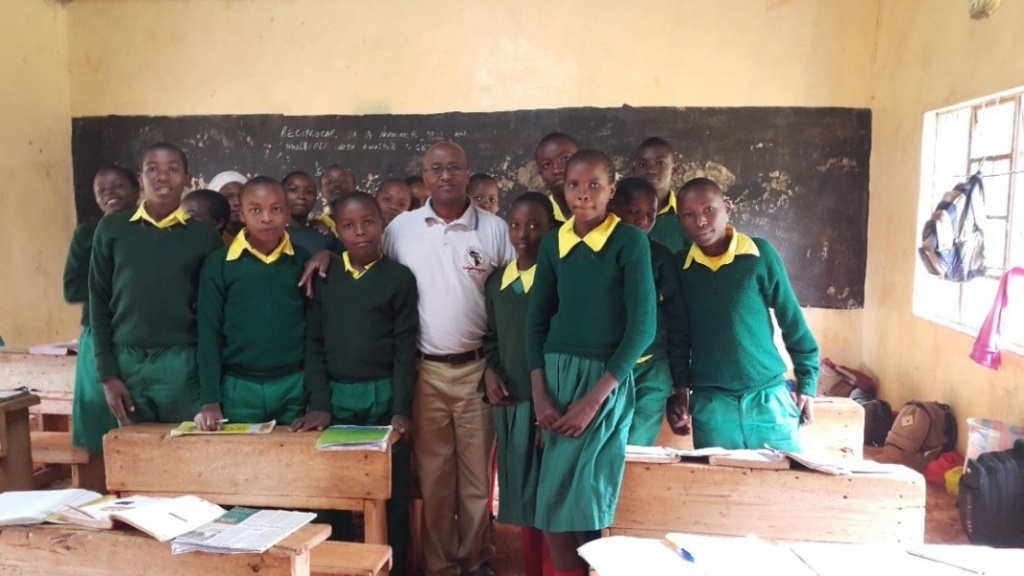Education Beyond COVID-19
 While at the start of the COVID 19 pandemic, some 1.3 billion learners worldwide did not attend school or university (UNESCO, 2020), the situation has now reversed, and most are back to school. Schooling is not only about learning but also about social interactions and learning to be a citizen. During the pandemic, the mission of education systems was and remains to reduce the negative impact of the crisis on schooling and build on the lessons learnt to get back on a path of faster improvement in learning. During the closures, learners, especially the underprivileged, who tend to have fewer educational opportunities and become vulnerable to social and economic vulnerabilities, were deprived of opportunities for growth and development.
While at the start of the COVID 19 pandemic, some 1.3 billion learners worldwide did not attend school or university (UNESCO, 2020), the situation has now reversed, and most are back to school. Schooling is not only about learning but also about social interactions and learning to be a citizen. During the pandemic, the mission of education systems was and remains to reduce the negative impact of the crisis on schooling and build on the lessons learnt to get back on a path of faster improvement in learning. During the closures, learners, especially the underprivileged, who tend to have fewer educational opportunities and become vulnerable to social and economic vulnerabilities, were deprived of opportunities for growth and development.
 In some situations, the long period of disengagement further increased child labour, sexual exploitation, teenage pregnancies, and early marriages for girls and recruitment into truancy groups and gangs for boys. During the crisis, the education subsector was compelled to utilize available technological tools and platforms to offer continual learning with numerous creative efforts by governments, private entities, schools, teachers, and parents. While COVID turned education into everybody’s homework (Cerdan, 2020), homeschooling was a massive shock to parents’ productivity and children’s social life (Burgess & Sievertsen, 2020). While schools with the technical and fiscal capability and willing parents engaged their learners with online classes, the situation was worse for rural and slums parents due to their limited education, ICT, and energy resources and the fact that homes are not usually designed for learning. COVID has redefined the role of the teachers, and the notion of an educator as the knowledge-holder who imparts wisdom to their pupils is no longer fit for a 21st-century education (World Economic Forum 2020). While moving instructional practices from classrooms to homes could present some human and technical challenges, in the future, there is a need for enhanced capacities and sustained support mechanisms for teachers to offer more off-school learning and schooling. While COVID-19 could become endemic, lessons learnt during the pandemic could lead to a much more shared understanding of the various off school instructional strategies tailored to local contexts and communities. The education sector could use lessons learned to open up new possibilities for doing things differently. Such could lead to improved, flexible, and remotely accessible modes of curriculum delivery and effective use of technology to involve parents in schools.
In some situations, the long period of disengagement further increased child labour, sexual exploitation, teenage pregnancies, and early marriages for girls and recruitment into truancy groups and gangs for boys. During the crisis, the education subsector was compelled to utilize available technological tools and platforms to offer continual learning with numerous creative efforts by governments, private entities, schools, teachers, and parents. While COVID turned education into everybody’s homework (Cerdan, 2020), homeschooling was a massive shock to parents’ productivity and children’s social life (Burgess & Sievertsen, 2020). While schools with the technical and fiscal capability and willing parents engaged their learners with online classes, the situation was worse for rural and slums parents due to their limited education, ICT, and energy resources and the fact that homes are not usually designed for learning. COVID has redefined the role of the teachers, and the notion of an educator as the knowledge-holder who imparts wisdom to their pupils is no longer fit for a 21st-century education (World Economic Forum 2020). While moving instructional practices from classrooms to homes could present some human and technical challenges, in the future, there is a need for enhanced capacities and sustained support mechanisms for teachers to offer more off-school learning and schooling. While COVID-19 could become endemic, lessons learnt during the pandemic could lead to a much more shared understanding of the various off school instructional strategies tailored to local contexts and communities. The education sector could use lessons learned to open up new possibilities for doing things differently. Such could lead to improved, flexible, and remotely accessible modes of curriculum delivery and effective use of technology to involve parents in schools.
Burgess, S., & Sievertsen , H. H. (2020). Schools, skills, and learning: The impact of COVID-19 on education. Research-based policy analysis and commentary from leading economists. Retrieved from https://voxeu.org/article/impact-covid-19-education

Well put. COVID-19 has revolutionized education and we need to continue leveraging on ICT as a platform in teaching and learning